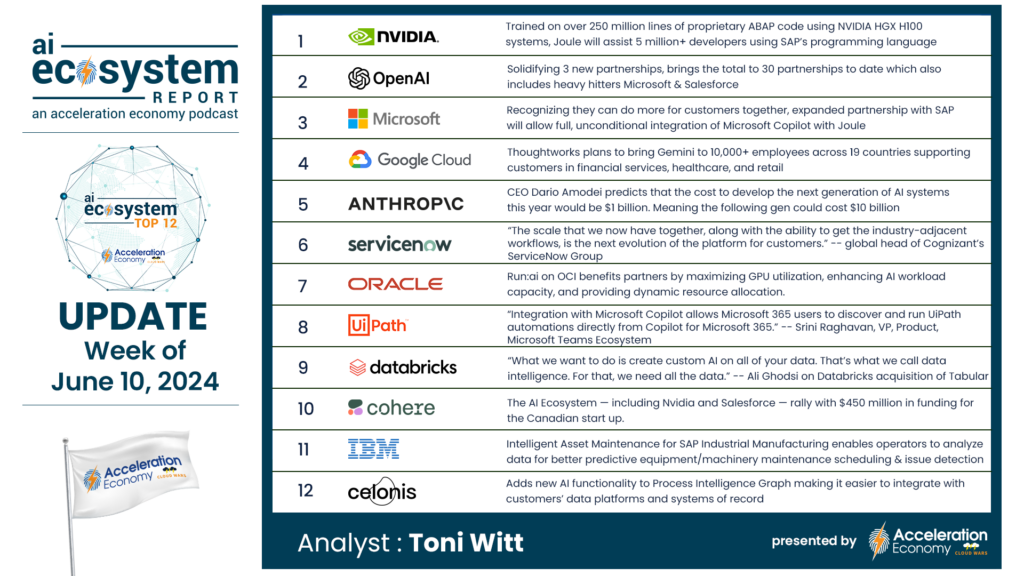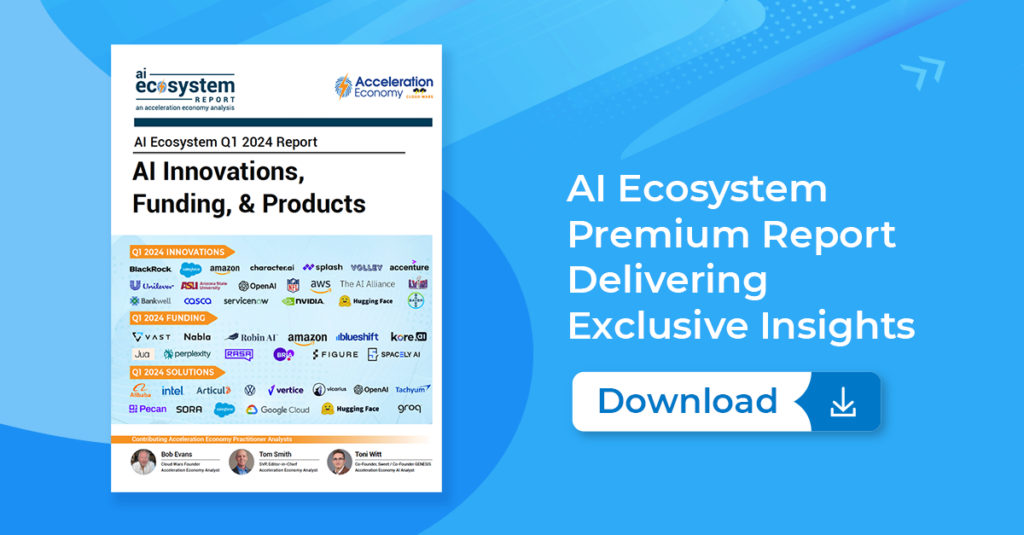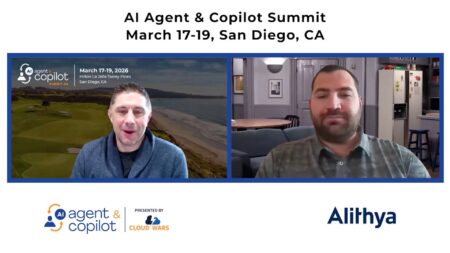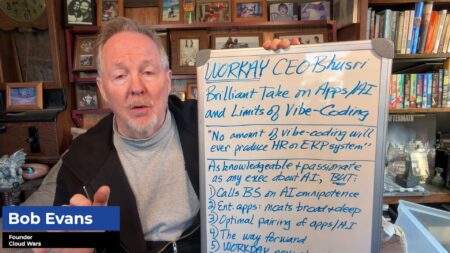This AI Ecosystem Report, featuring supply chain and procurement expert Joanna Martinez, an Acceleration Economy practitioner analyst, breaks down how procurement professionals can scrutinize the validity of claims that software is “born in the cloud,” and why it’s important to be clear on that point when evaluating software.
Highlights
00:42 — The terms “born in the cloud” and “cloud native” get used a lot. This means the software suppliers have built an application from the ground up to be delivered from the cloud.
01:12 — Cloud-native software is designed to be agile, efficient, and cost-effective. The software developer didn’t need to absorb the cost and disruption of transitioning to the cloud. To cite one example: Microsoft said in the recent past it’s now 99% in the cloud; it moved 60,000 on-premise servers to Azure where the company uses — at peak — 10,000 virtual machines. It conducted a huge amount of re-engineering, decommissioning, and rethinking.
02:40 — A company that’s made a major investment in a cloud transition is going to be looking to recoup it in some way; you need to understand if you’re being charged for that. You should expect software born in the cloud to have lower cost unless it has innovative features that no one else has.
03:09 — If the software uses AI and machine learning, it should be operating in the cloud. If a supplier is selling you something that is AI based, you need to make sure there is truly artificial intelligence and it’s not AI washing at play.
04:11 — There can be hidden risks with software running in the cloud. One is data ownership, which isn’t an issue if the data is on your system within your four walls, or within the supplier’s four walls. You need to make sure you have clear agreements on ownership of your data and also mobility and transition costs if the software firm decides to switch cloud suppliers.

05:27 — There are security protocols to consider. If the cloud provider makes a change in security that might affect you in some way and you don’t have a clear policy or agreement on communication, you might not know that. So, you need to ensure you have not just communications with your suppliers, but you need to go one step further back.
06:21 — Financials are a consideration as well. Cloud-native business are newer than traditional suppliers. They may be cashflow negative. You have to ensure your CFO won’t negate the choice of a cloud-native provider just because they lack the financial security of a more established firm. There are cases where selecting that newer cloud-native provider is the right thing to do.

The AI Ecosystem Q1 2024 Report compiles the innovations, funding, and products highlighted in AI Ecosystem Reports from the first quarter of 2024. Download now for perspectives on the companies, investments, innovations, and solutions shaping the future of AI.










